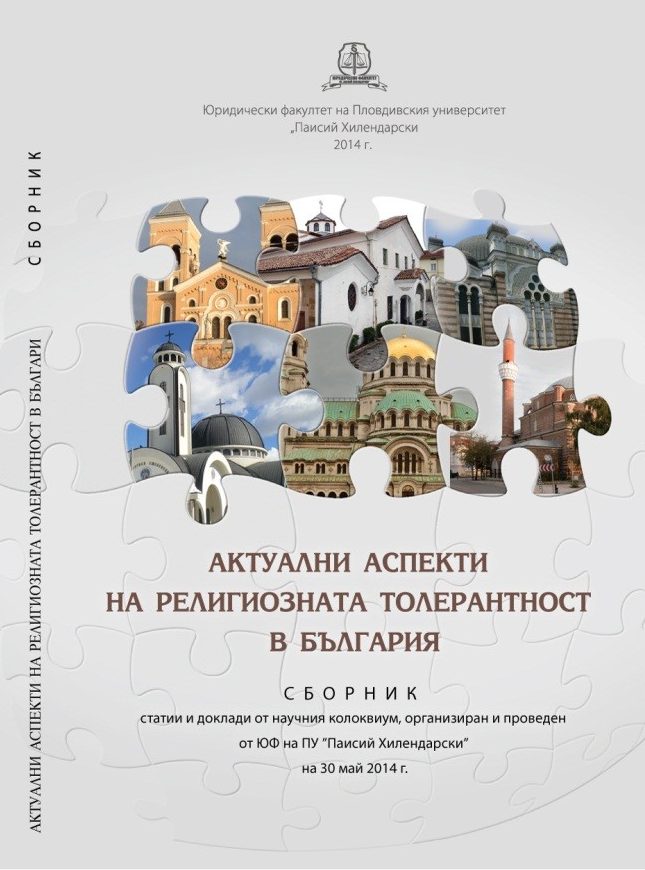За религиозните свободи и тяхната неотменимост
About the Religious Freedoms and Their Inalienability
Author(s): Hristo Paunov
Subject(s): Law, Constitution, Jurisprudence, Constitutional Law, Canon Law / Church Law
Published by: Пловдивски университет »Паисий Хилендарски«
Keywords: religious freedoms; inalienability
Summary/Abstract: It is accepted in the contemporary constitutional doctrine that religious freedom is universal right which consists of three components: freedom of conscience, freedom of religious rights and freedom of the establishment and participation in religious associations. Pursuant to Article 37(1), the first sentence in the Constitution of Bulgaria 1991 states: ‘freedom of conscience, freedom of thought and choice of religion and of religious or atheistic views shall be inviolable.’ The Constitutional Court of Republic of Bulgaria in its practice emphasizes that recognizing the religious identity of every individual is a fundamental constitutional principle which is equal to recognizing the atheistic views and these two constitutional principles are derivative of the supreme constitutional principles of humanism, tolerance and respect human dignity. The present study examines the content of the rights in Article 37 in the Constitution of Republic of Bulgaria, as well as its character as an ‘inalienable right’ under the provision of Article 57 (1) in the same Constitution. The inalienability of the religious freedoms is guaranteed by the possibility, intended by the legislator, for this principle to be amended only by the executive body - The Grand National Assembly.
- Page Range: 110-115
- Page Count: 6
- Publication Year: 2014
- Language: Bulgarian
- Content File-PDF

